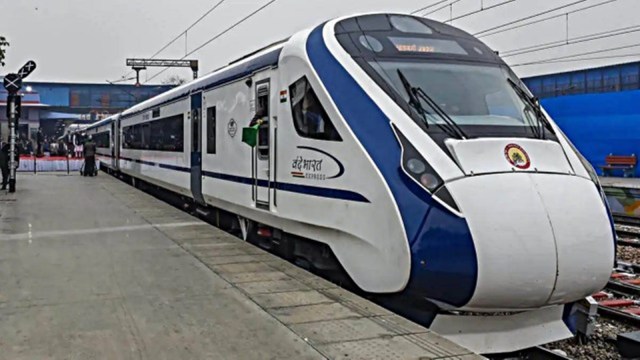From new airport for Bengaluru to tunnel roads – what to expect in Bengaluru’s mobility space in 2025
AI-powered Bengaluru Adaptive Traffic Control System, launched in May 2024, currently covers 60 junctions in the city
 In order to cater to the growing demand for the Shakti scheme (free travel for women), the Karnataka transport department has inducted 4,304 buses for the years 2023-24 and 2024-25. (Express File)
In order to cater to the growing demand for the Shakti scheme (free travel for women), the Karnataka transport department has inducted 4,304 buses for the years 2023-24 and 2024-25. (Express File) Bengaluru, the IT capital of India, has witnessed a groundbreaking year in 2024 with several transformative and disruptive mobility and transport projects aimed at decongesting traffic and enhancing connectivity. From major rail and metro expansion to cutting-edge AI-powered traffic systems, the city has been at the forefront of initiatives designed to address its long-standing mobility challenges. Here’s a round-up of the key projects in Bengaluru that took shape in 2024 and the big-ticket mobility plans that are in store for the city in 2025.
Vande Bharat train to Kalyan Karnataka
In what came as a major relief for the Kalyan Karnataka region, which has been demanding seamless rail connectivity, the Indian Railways introduced the Kalaburagi-SMVT Bengaluru-Kalaburagi Vande Bharat Express (Train No. 22231/22232) in March 2024. The train covers a distance of 548 km and takes 8 hours and 45 minutes to complete the journey.
Metro to Bangalore International Exhibition Centre
On November 7, Bengaluru Metro Rail Corporation Limited (BMRCL) opened the 3.14-kilometre extension of the Namma Metro Green Line from Nagasandra to Madavara (Bangalore International Exhibition Centre) for commercial operations. The new stretch, consisting of three stations – Manjunathanagar, Chikkabidarakallu, and Madavara (BIEC) – is expected to serve approximately 44,000 passengers daily. The extended metro line to BIEC provides major relief for those attending conferences, exhibitions, and other events at the venue, as well as residents of nearby neighbourhoods who will now have direct access to the metro network to commute to different parts of the city.
Greenlighting Phase 3 and 3A
When all answers to Bengaluru’s traffic congestion point to robust public transport, the approval for Phase 3 and 3A metro projects proved to be a boost. The Karnataka Cabinet early this month approved the much-anticipated 36.59km metro line connecting Sarjapur to Hebbal as part of Phase 3A of the Bengaluru metro rail project. The line, which is going to be built at an estimated cost of Rs 28,405 crore, consists of 22.14 km of elevated section with 17 stations and 14.45 km of underground section with one metro station. Additionally, the Union Government also approved Phase 3 of the metro project consisting of two corridors connecting JP Nagar 4th Phase to Kempapura (32.15km) and Hosahalli to Kadabagere (12.5km) with a total of 30 stations.
BEML unveils prototype driverless metro train
BEML Ltd, India’s leading PSU that manufactures rail and metro train sets, in August this year commenced the prototype manufacturing of driverless metro train sets for the 5RS-DM Project, dedicated to the expansion of the Bengaluru metro network, including the highly anticipated Airport Line. The company secured the prestigious order for 53 trainsets in August 2023, overcoming fierce global competition. The project, valued at approximately Rs 3,177 crore, covers the design, manufacture, supply, installation, testing, and commissioning of the trainsets, alongside comprehensive maintenance services for up to 15 years under Bengaluru Metro Rail Project Phases 2, 2A, and 2B.
Bus fleet gets a boost
In order to cater to the growing demand for the Shakti scheme (free travel for women), the Karnataka transport department has inducted 4,304 buses for the years 2023-24 and 2024-25. Bengaluru Metropolitan Transport Corporation got the highest share of 1,510 buses followed by Karnataka State Road Transport Corporation (1,118), Kalyana Karnataka Road Transport Corporation (1,014), and North Western Karnataka Road Transport Corporation (662). Last week, KSRTC also launched an additional 20 Ambaari Utsav sleeper buses. Under the Shakti scheme, 356 crore women have travelled on Karnataka state transport vehicles, with a zero ticket value of Rs 8,598 crore. The proportion of women passengers stands at 58 per cent. The number of passengers travelling daily across the four transport corporations has increased to 108 lakh in 2024.
AI-powered traffic signals
Bengaluru Adaptive Traffic Control System (BATCS), the AI-powered system, launched in May 2024, currently covers 60 junctions and is part of a broader plan to modernise traffic management in a city notorious for its congestion. BATCS, which combines the power of real-time data collection and AI-driven analytics, adjusts traffic signal timings dynamically to match current traffic volumes. Unlike older, fixed-time traffic control systems, the adaptive system responds to changing traffic conditions at each intersection. This system aims at reducing unnecessary delays and optimising traffic flow, particularly during peak hours.
What to expect in 2025?
Bengaluru’s mobility landscape is set for a major transformation in 2025, with several high-profile projects poised to revolutionise the way the city moves. All eyes will be on the much-anticipated Bengaluru metro’s Yellow Line connecting a distance of 18 km between RV Road and Bommasandra. This line – which has missed several deadlines – is expected to be commissioned in the early phase of 2025, with the first driverless train from Titagarh Rail Systems Limited set to reach Bengaluru by January 15, 2025. Additionally, the prototype distance-to-go (DTG) train for Bengaluru metro’s Purple Line from China will reach Chennai port and will be delivered to Bengaluru’s Peenya depot by January 10, 2025.
The groundwork for Deputy Chief Minister D K Shivakumar’s ambitious tunnel road project is set to begin. The Detailed Project Report (DPR) and pre-feasibility report for the Rs 15,000 crore tunnel road project connecting Hebbal-Silk Board have already been submitted to Bruhat Bengaluru Mahanagara Palike and the civic agency is set to float tenders for civil works in 2025.
Additionally, the civic body will also set the ball rolling for its proposed 170-km network of tunnels, double-decker passageways, elevated corridors, and underpasses to streamline mobility and decongest Bengaluru traffic. As part of the plan, 16 elevated corridors and two tunnels have been proposed. The total length of elevated corridors/ double-deckers/ underpasses amounts to 124.7 km. Meanwhile, the total length of tunnels (north-south and east-west) amounts to 46 km.
Meanwhile, the Karnataka government is set to finalise the location for Bengaluru’s second airport. As of now, Dabaspet, Nelamangala, Bidadi, Harohalli, and another new location have been shortlisted. Infrastructure Development Corporation (Karnataka) is currently conducting a survey to finalise the location, following which the state government is likely to announce its decision in early 2025.
Further, the slow-paced Bengaluru Suburban Rail Project is likely to see the light of the day. K-RIDE, the implementing agency of the project, is eyeing to operationalise a portion of Corridor 2 of the project by December 2025. According to the K-RIDE officials, the 7.4 km from Chikkabanavara to Yeshwantpur will be the first to be completed and commissioned by December 2025. Corridor 2 (Mallige line) connects Benniganahalli to Chikkabanavara via Hebbal and Yeshwanthpura.







